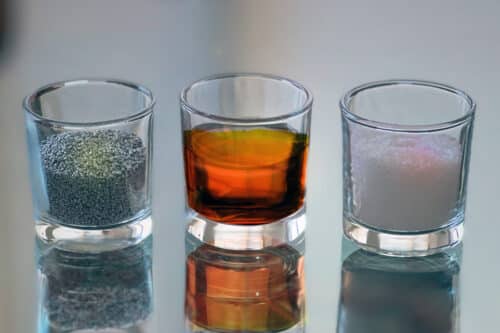Researchers have built an inexpensive aluminum-sulfur battery that can become a low-cost backup storage for renewable sources.

With increasing power system installation, the need for an alternative for the lithium-ion batteries is also increasing. Researchers at MIT have developed a new kind of battery that is made from entirely cheaper materials.
The newly invented battery uses aluminum and sulfur as the electrode materials with a molten salt electrolyte in between. All the three ingredients of these batteries are readily available at a cheaper price. The team demonstrated that the battery can endure hundreds of cycles at higher charging rates. The projected cost per cell is about one-sixth of the lithium-ion cells. The charging rate was dependent on the working temperature. Increased temperature of 110 degree Celsius showed 25 times faster than at 25 degrees Celsius.
The team chose molten salt as electrolyte for its low melting point. Also, it helps overcome one of the common challenges with other batteries – the formation of dendrites. Dendrites are narrow spikes of metal that build up on one electrode that grow across to contact the other electrode. This causes a short-circuit, reducing the efficiency of the battery. The molten salt prevents this malfunction.
Also this battery does not require external heat to maintain temperature. The reaction in the electrolyte automatically emits heat, creating temperature. This new battery can be used for setups to power a single home or a small business.
The smaller scale of aluminum-sulfur batteries make them idle for electric vehicle charging stations. These stations can store power and charge the vehicles faster compared to the current charging stations.
“I wanted to invent something that was better, much better, than lithium-ion batteries for small-scale stationary storage, and ultimately for automotive [uses],” explains Sadoway, who is the John F. Elliott Professor Emeritus of Materials Chemistry.







REMEK!
Magyarországon mikor lesz kapható?